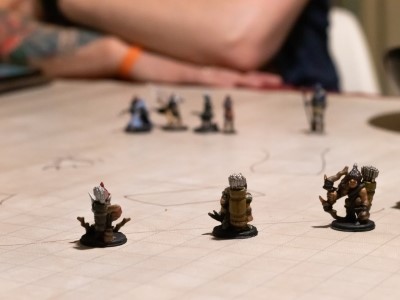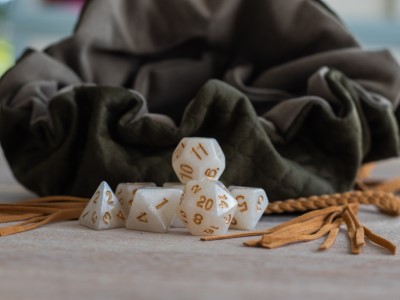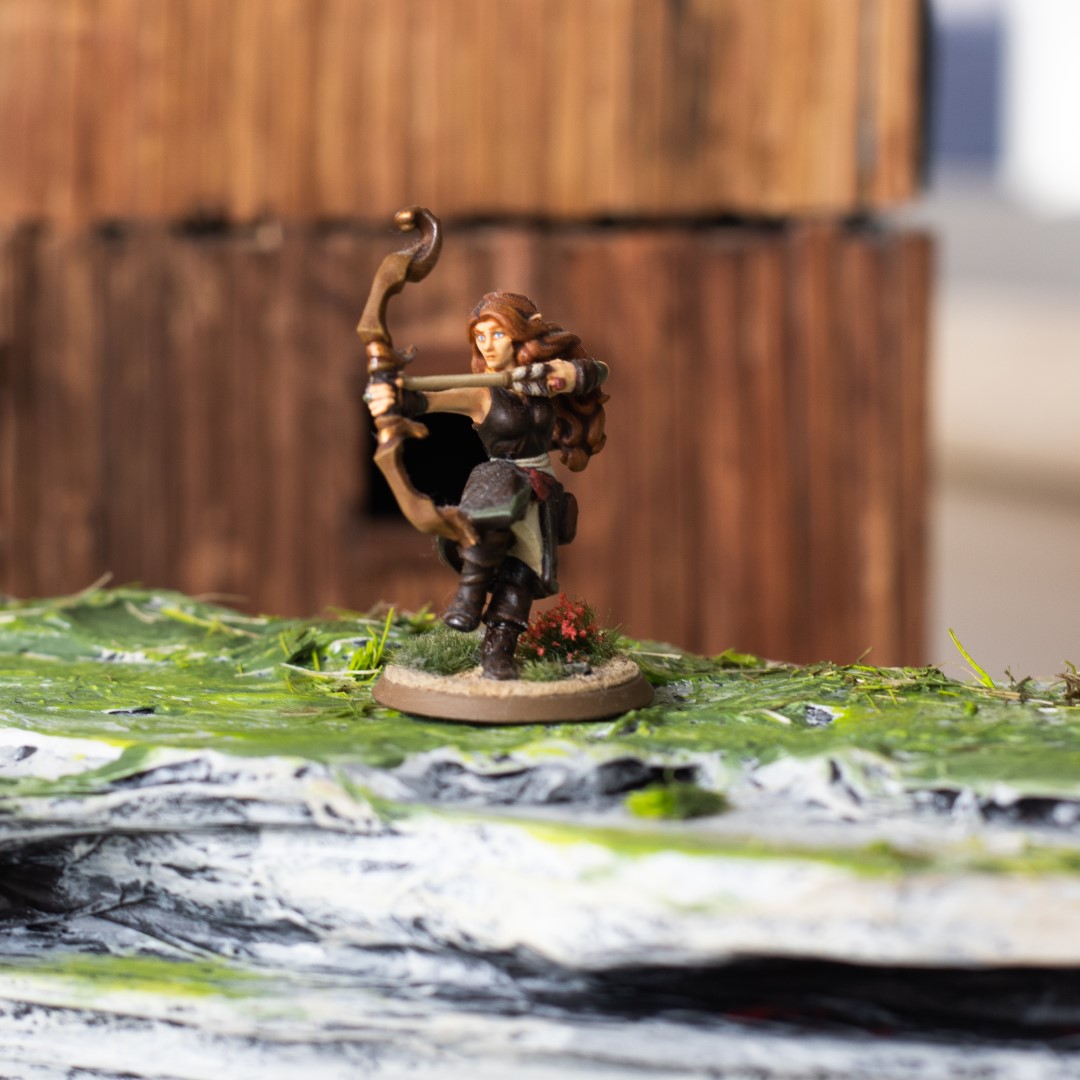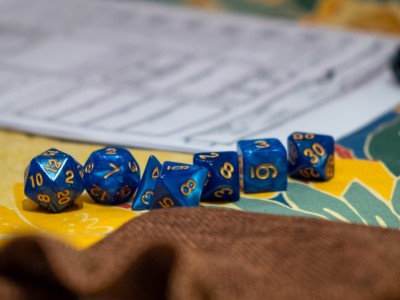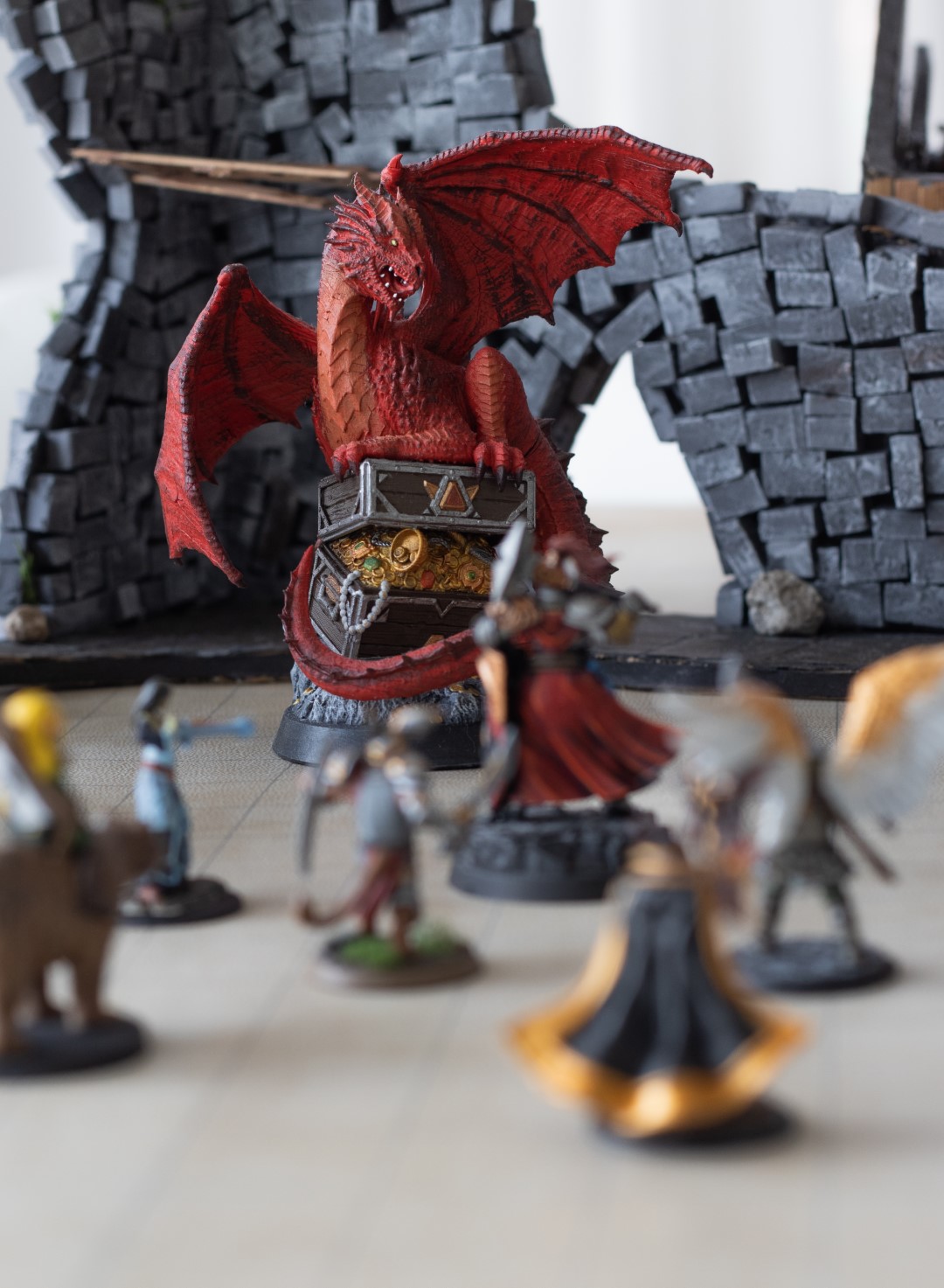
Glossary
| Polydice | A set of seven different types of dice necessary to play the game. |
| D20 | arguably the most important die in the game, which you will use most often to decide whether your character succeeds at a particular action. It is a die with 20 sides, which is where it got its name. |
| GM | Een Game Master en wordt soms ook wel DM (Dungeon Master genoemd). Deze persoon leidt het verhaal en beschrijft de wereld. |
| Character sheet | A piece of paper which describes your character's characteristics, for example how strong or charismatic they are, or what gear they carry with them. |
| Race | there are many fantastical races to play in D&D; from the famous elf and dwarf to the lesser known satyr, vedalken, or aasimar. |
| Class |
in addition to a race, you will choose a class for your character. These consist of the eagle-eyed ranger, the nature-loving druids, and many more. |
| Initiative |
Initiative/initiatief nemen is wanneer een gevecht start, en iedereen moet rollen om te zien wanneer ze aan de beurt zijn binnen een ronde. De ‘initiative order’ is dus de volgorde van wie aan de beurt is. |
| Skill check |
Skill checks zijn rollen gemaakt om te bepalen of een personage slaagt in een uitdagende taak. Zo kan er voor een Perception check gevraagd worden om te kijken hoe goed iemand kan kijken, luisteren, of ruiken, of een Stealth check om te kijken hoe stil het karakter is. De skills/vaardigheden zijn terug te vinden in je character sheet. |
| Saving throw |
Saving throws zijn rollen gemaakt om te bepalen of een personage slaagt in een laatste poging om te voorkomen dat er iets ergs gebeurt. Een fireball ontwijken, niet verdrinken, of weerstand bieden tegen vergif zijn hier goede voorbeelden van. Je saving throws kan je ook weer terug vinden in je character sheet. |
| Armor Class |
Je Armor Class (of AC) geeft aan hoe moeilijk je karakter is om te raken. Een hoger getal betekent dat je minder kans hebt om geraakt te worden. Dit kan bijvoorbeeld komen door de snelle reflexen van een personage, het pantser dat ze dragen of een combinatie van beide. |
| Spells |
Dit zijn je spreuken. Niet alle karakters en classes hebben spreuken. Er is een verschil tussen ‘divine magic’ (magie van een goddelijke afkomst) en ‘arcane magic’ (vanuit de mens zelf of vanuit boeken). Zo heeft een Cleric andere spells dan een Wizard. |
